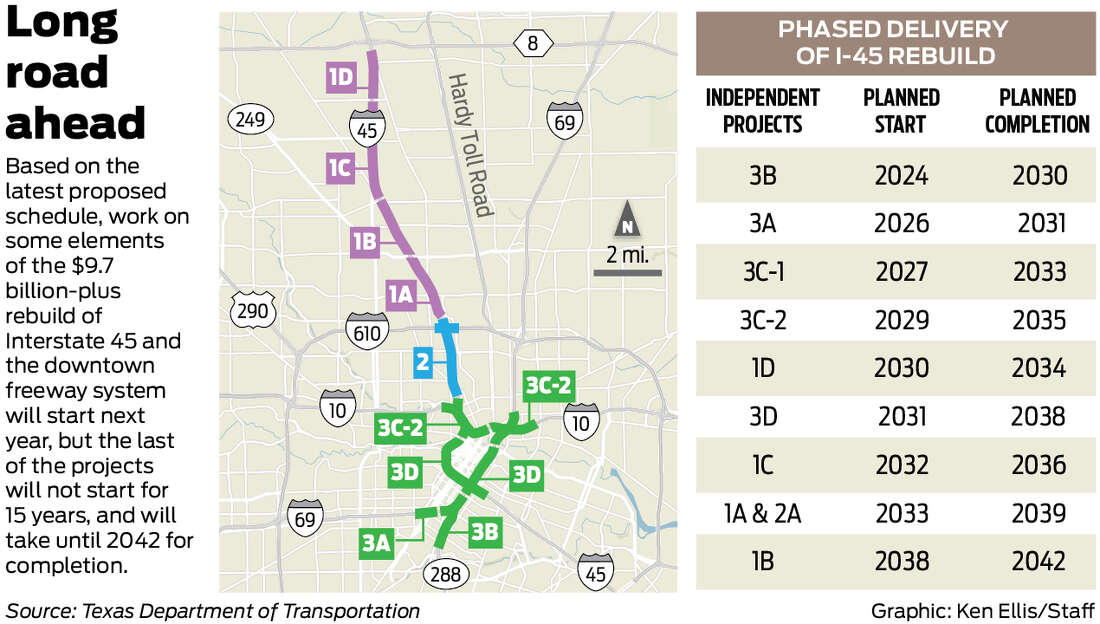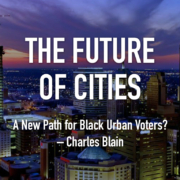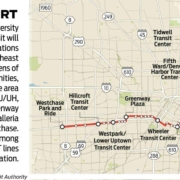Is the 18 year Rebuild of 45N a Good Thing or Will it Kill Downtown?
A couple of items this week:
Houston Chronicle: Nearly two decades: The long, long journey ahead for $9.7B rebuild of I-45. It is a crazy long schedule (see graphic below). What I can’t tell from this schedule is if the extended length is specifically because TXDoT wants to minimize disruption? Generally speaking, faster projects are more disruptive with more lane closures. Maybe they’re stretching it out so they don’t have to do that? If they’re not, that would be my advice to TXDoT: commit to keeping all existing lane capacity open throughout the construction process, even if that requires stretching the schedule. One silver lining of the rise of remote and hybrid work during the pandemic is that it may actually help employers endure the construction without moving because their employees can be more flexible about what hours and days they come in. If that can help reduce and stretch out rush hours, it can minimize the pain. I got quoted in this one:
“Past freeway projects typically only affected one or two spokes at a time, and downtown employers just dealt with it since it only affected a portion of their employee base,” said Tory Gattis, a senior fellow at the Urban Reform Institute, which advocates for business-focused downtown development. “But with the normalization of remote and hybrid work, as well as this project affecting all the freeways coming into downtown, it could definitely be the tipping point to major employers following Exxon to the suburbs or just going more remote so their employees won’t have to fight their way downtown as often.”
New York Times: What’s the Matter With New York? Paul Krugman keeps writing defensive articles about failed Blue city policies, but they’re not very convincing. He does support my case on housing though:
“For the middle class, however, living in New York really is hard to afford — not so much because of taxes, but because of housing costs…”
Read the rest of this piece at Houston Strategies.
Tory Gattis is a Founding Senior Fellow with the Urban Reform Institute and co-authored the original study with noted urbanist Joel Kotkin and others, creating a city philosophy around upward social mobility for all citizens as an alternative to the popular smart growth, new urbanism, and creative class movements. He is also an editor of the Houston Strategies blog.
Photo: Texas Department of Transportation, Public Domain



 Public Domain
Public Domain




